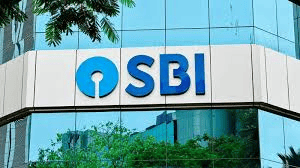SBI Share Price Target at Rs 975: Kotak Securities
State Bank of India (SBI) has been rated as BUY in a research note by Kotak Institutional Equities, setting a fair value target of Rs 975 per share. Despite a recent moderation in earnings and net interest margin (NIM) compression, the research house underscores SBI’s robust asset quality, strong capital position, and resilient franchise as key differentiators in India’s public banking sector. The bank’s management is focused on protecting return on assets (RoA) amid revenue headwinds, while operational re-engineering and digital transformation are set to drive future growth. Investors are advised to accumulate SBI at current levels, with a medium-term target of Rs 975, as the bank is poised to outperform public sector peers once the interest rate cycle stabilizes.
Research House Recommends ‘BUY’ on SBI with Rs 975 Target
Kotak Institutional Equities has reaffirmed its BUY rating on State Bank of India, maintaining a fair value (FV) estimate of Rs 975 per share, reflecting confidence in the bank’s long-term prospects despite near-term margin pressures.
Kotak’s valuation is based on 1.5x adjusted book value and 10x FY2027E earnings per share (EPS), with an expectation of sustainable return on equity (RoE) in the 14-15% range. The current market price (CMP) of Rs 812 offers an attractive entry point for investors, representing a potential upside of 20% from current levels.
Key Investment Highlights and Strategic Focus
SBI’s management is proactively addressing challenges posed by a softening interest rate cycle, focusing on protecting RoA and leveraging its superior asset quality to navigate revenue headwinds.
Net interest margins are expected to remain under pressure in the initial phase of the rate cut cycle, as deposit repricing lags loan repricing. However, a recovery in NIM is anticipated in the second half of the year as deposit rates adjust more quickly than loan rates.
The bank is not constrained by liabilities, cost of funds, or asset quality, positioning it to outpace industry loan growth averages, especially as corporate credit demand gradually revives.
SBI’s diversified loan book and improved borrower monitoring tools in the mid-corporate segment are expected to drive incremental growth, while retail loan demand may recover as interest rates fall and incomes rise.
Asset quality remains a bright spot, with net non-performing loans (NPLs) at multi-decade lows and a healthy provision coverage ratio (PCR), reinforcing SBI’s best-in-class underwriting standards.
Operational Performance and Financial Metrics
Despite a softer quarter, SBI’s financial metrics remain resilient, with strong capital ratios and improving asset quality trends.
SBI’s Q4FY25 net profit declined 10% year-on-year to Rs 18,643 crore due to higher provisions, while net interest income (NII) grew 2.7% to Rs 42,775 crore.
NIM compressed to 3% in Q4FY25, down from 3.1% in the previous quarter and 3.3% a year ago, reflecting the impact of higher funding costs and slower loan growth.
Loan growth moderated to 12.4% year-on-year, primarily due to large prepayments in the corporate book, while deposit growth stood at 9.2%.
Asset quality improved, with the gross NPA ratio falling to 1.96% and net NPA ratio at 0.50% as of March 2025.
The bank’s capital adequacy and liquidity positions remain comfortable, supporting future growth initiatives.
Valuation, Peer Comparison, and Shareholding Structure
SBI trades at a premium to public sector peers, justified by its scale, diversified business mix, and superior asset quality.
The stock is currently valued at 1.6x one-year forward adjusted price-to-book (P/B), about 30% higher than other public sector banks, reflecting its leadership and resilience.
Mutual funds hold a 12.16% stake in SBI, while foreign portfolio investors (FPIs) and retail investors maintain significant positions, underscoring broad-based institutional confidence.
SBI’s 52-week price range is Rs 680–912, with a market capitalization of Rs 7.25 trillion.
Target for Investors:
Accumulate SBI at current levels (Rs 812) with a 12-month target of Rs 975.
Key support is seen near Rs 780, while resistance is expected around Rs 900 and Rs 950.
Investors should monitor NIM trends, loan growth recovery, and asset quality metrics as leading indicators for performance.
Strategic Initiatives and Future Outlook
SBI is embarking on operational process re-engineering to enhance customer experience and unlock new revenue streams, positioning itself for long-term growth.
The bank is focused on simplifying customer journeys and integrating standalone services (loans, payments, deposits) to improve lifecycle management and retention.
These initiatives are expected to be cost-effective and margin accretive, supporting RoA even as NIM faces cyclical headwinds.
Risks and Investment Considerations
While SBI’s asset quality and capital base provide a cushion, investors should be mindful of cyclical risks to margins and earnings volatility in the near term.
Prolonged NIM compression or a sharper-than-expected slowdown in loan growth could weigh on profitability.
Higher-than-anticipated credit costs or a deterioration in asset quality, though not currently foreseen, would be key risks to monitor.
Conclusion: SBI Remains a Top Pick Among Public Sector Banks
Kotak Institutional Equities maintains SBI as a preferred idea in the public banking space, citing its robust fundamentals, strong franchise, and attractive valuation.
Investors are advised to accumulate SBI with a target price of Rs 975, as the bank is well-positioned to capitalize on the next phase of credit growth and digital transformation in India’s banking sector. The current valuation offers a favorable risk-reward profile for medium- to long-term investors.
